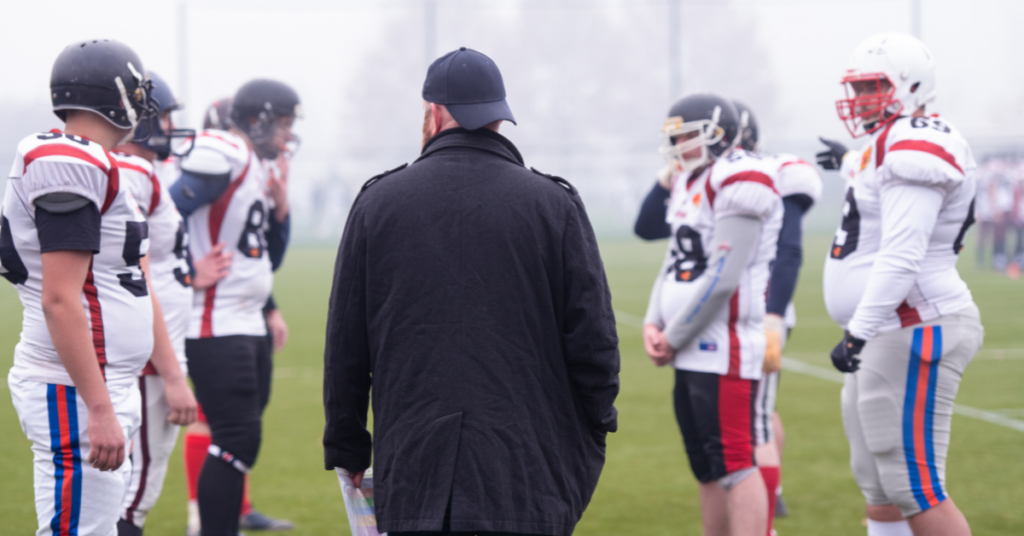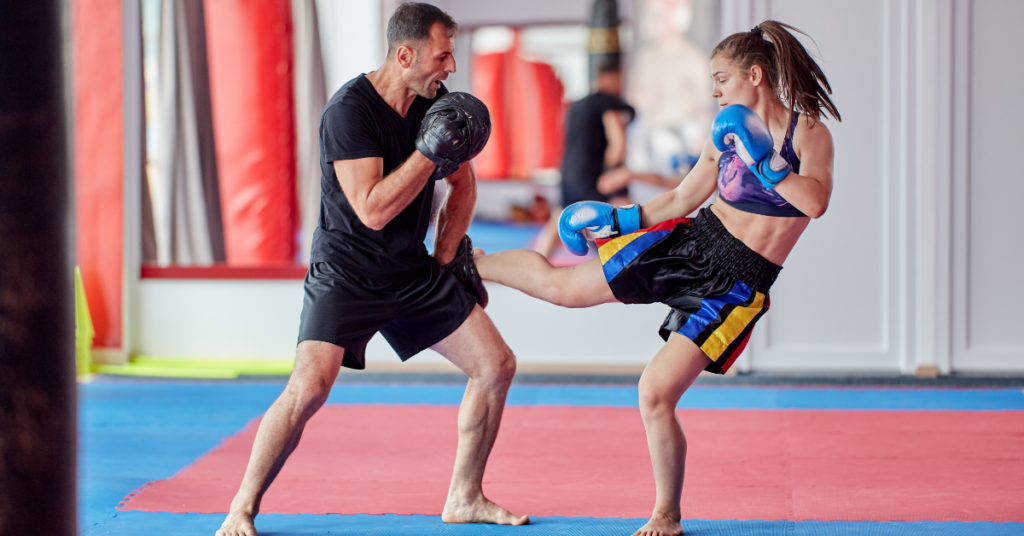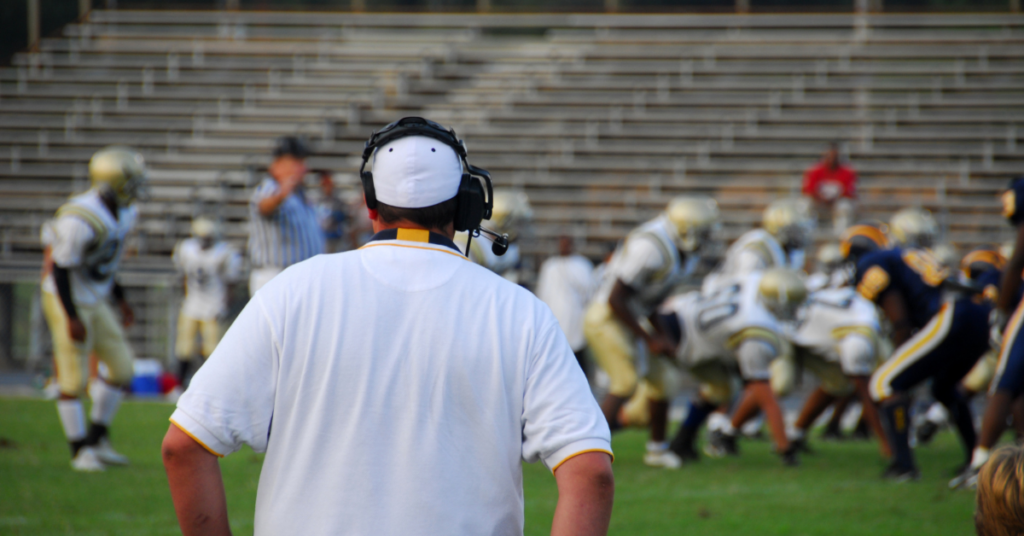
The recruiting process is a challenging period, but it’s actually a great opportunity to find the perfect fit for you and understand whether this or that college offers exactly the coach, culture, team, and academics for you. It’s important to remember that while coaches are evaluating you, you should also be evaluating them and their program. To help you get started, here are the top 10 questions to ask college coaches and also a list of specific questions you should ask regarding other aspects of your studies and training.
10 First and Foremost Questions to Ask College Coaches
-
- What’s Your Application Process?
- How Would You Characterize Your Approach to Coaching?
- What Are Some of the Most Popular Majors Among Athletes in Your Program?
- Do You Have an Academic Support System for Team Members?
- What does Your Strength and Conditioning Program Include?
- Can You Explain the Team’s Approach to Nutrition?
- What Is Your Approach to Injury Prevention and Treatment?
- What Is a Typical Day for One of Your Student-Athletes?
- What Is the Social Atmosphere Like within the Team?
- How Often and Where Does the Team Travel for Games and Events?
- Other Questions You Can Ask College Coaches
 What’s Your Application Process?
What’s Your Application Process?
One of the first questions to ask college coaches is about the application process. The application process might differ depending on the college you are applying. However, your future coach will probably tell you that, in most cases, it starts with submitting your academic records, athletic highlights, and participation history. Some institutions also require a personal essay and letters of recommendation. After reviewing your application, you will be invited for a campus visit and an interview. Ask your coach to meet the team and get a feel for their program if you pass this stage.
 How Would You Characterize Your Approach to Coaching?
How Would You Characterize Your Approach to Coaching?
Every coach has their own unique style of coaching. Some are more supportive, while others are very challenging. Yet, they understand the importance of pushing athletes to their limits while ensuring they have the support they need. Talk to your potential coach about their approach and whether they focus on developing not just athletic skills but also leadership and teamwork abilities. It’s important to train with someone who’ll be challenging you but not to exhaustion.

 What Are Some of the Most Popular Majors Among Athletes in Your Program?
What Are Some of the Most Popular Majors Among Athletes in Your Program?
Again, depending on the college program and the college itself, you’ll hear a different answer when you talk to each coach. Overall, some popular choices include Kinesiology, Business, and Communications. Make sure to inquire about the ways your academic pursuits will be supported and that you’ll have academic advisors to ask for advice.
Check out the following majors popular among athletes:
|
 Do You Have an Academic Support System for Team Members?
Do You Have an Academic Support System for Team Members?
That’s what we mentioned in the previous questions to ask college coaches. Most colleges have an academic support system, which includes dedicated academic advisors for athletes. Depending on the college, there are also tutoring and study group sessions designed specifically to fit around training schedules. Ask your coach how exactly you can rely on this assistance and support to succeed in your studies.
| Check out how Nebraska Athletics supports student-athletes. |
 What does Your Strength and Conditioning Program Include?
What does Your Strength and Conditioning Program Include?
Ideally, your future coach will tell you that their strength and conditioning program is more or less tailored to each athlete, focusing on both overall fitness and sport-specific skills and that it includes weight training, cardio exercises, flexibility workouts, etc. In reality, each college’s program is different. Ask your coach how they assess athletes’ progress and adjust programs to optimize performance and prevent injuries.
| Check out these S&C programs:Strength and Conditioning (S&C) program at Harvard The Morehead State Strength and Conditioning ProgramOr the Strength & Conditioning program at the University of Pennsylvania |
 Can You Explain the Team’s Approach to Nutrition?
Can You Explain the Team’s Approach to Nutrition?
This question is no less important than the rest, as nutrition is key to many things. Therefore, ask the college coach about their approach to personalized nutrition plans for each athlete. Ask who designs their programs (e.g., a sports nutritionist, performance nutritionist, etc.) and whether the plans focus on optimizing performance and recovery—it’s worth knowing how things are arranged regarding nutrition. You can also ask whether the program provides resources about developing healthy eating habits and dietary advice.
| You may want to check this out: Food Advice for Student Athletes (and the Fans Who Watch) from the UNLV director of performance nutrition, Kennedy Springer. |
 What Is Your Approach to Injury Prevention and Treatment?
What Is Your Approach to Injury Prevention and Treatment?
Injury prevention and treatment are one of the top priorities for athletes. You will probably hear that the college you want to apply to has a team of trainers and physiotherapists who work with athletes on preventive exercises. However, it makes sense to specify whether they have sport-specific, injury-specific, position-specific, or individualized injury prevention programs—just to know. Also, ask whether the college provides immediate care and a comprehensive rehabilitation plan.
| For example, the Injury Prevention and Care (IPC) team at Georgia Southern University consists of three certified athletic trainers. |
 What Is a Typical Day for One of Your Student-Athletes?
What Is a Typical Day for One of Your Student-Athletes?
You can hear that the average day of a college athlete is quite different from that of a regular student. It’s true. It will also vary between every sport and school.
Here’s a possible schedule that your college coach may describe: the day starts early at around 6:15 am, when you get dressed, brush your teeth, and head to breakfast. After breakfast, you head to the weight room for a 7:00 am lift/conditioning. After training, you take a shower, grab a bite to eat, and attend classes until it’s time for lunch (there will be a strong emphasis on academic work; you’ll surely hear that, too). After lunch, you head back to the locker room to prepare for practice, from around 3:00–5:00 pm. After practice, you take a shower, have dinner, and attend study hall until about 10:00 pm.
Then, you eat and head back to the dorm to relax. All in all, your future coach will tell you that the average day of a college athlete is quite demanding, so you have to be ready for a real challenge.
| Learn what it takes to be a student-athlete from Exercise Science major and Illinois State University record holder in the indoor heptathlon and outdoor decathlon Ariel Atias. Or read about A Day in the Life of a Student-Athlete from Michigan Tech Athletics students and Experience of Being a Student Athlete from the University of Illinois Chicago (UIC). |
 What Is the Social Atmosphere Like within the Team?
What Is the Social Atmosphere Like within the Team?
We’re sure you want to become a part of a close-knit and supportive community. So, ask about the atmosphere within the team and whether team bonding through various activities and events outside of practice and games is encouraged. While you won’t know for sure until you become a student and experience it firsthand, you can still get a sense of the team’s dynamics by requesting to observe or meet the team and see how members interact with each other.
| Get interesting insights into How women student athletes navigate college life. Check student feedback from Athletics at K (Kalamazoo College). |
 How Often and Where Does the Team Travel for Games and Events?
How Often and Where Does the Team Travel for Games and Events?
Here, the answer will also vary depending on your sport, specialty, and season. Most games are usually within a few hours’ drive, but there might be longer trips, possibly requiring a flight. Don’t forget to ask about travel arrangements and how the college suggests handling academic commitments when planning trips.

Other Questions You Can Ask College Coaches
Apart from those essential questions, you can go into specifics. Here are some other questions to ask college coaches:
|
|
|
|
Conclusion
BookScouter hopes that you’ll find our recommendations on what to ask college coaches helpful. So when it’s time to meet your future coach, you’ll have a list of questions ready. Of course, depending on your sport, specialization, and college, you may need to ask more specific questions. But don’t worry; you can use this as a starting point and add anything else you need to know. Best of luck!




 Athletics Questions
Athletics Questions Questions about the Team and Training
Questions about the Team and Training Financial Questions to Ask College Coaches
Financial Questions to Ask College Coaches Academics Questions
Academics Questions

